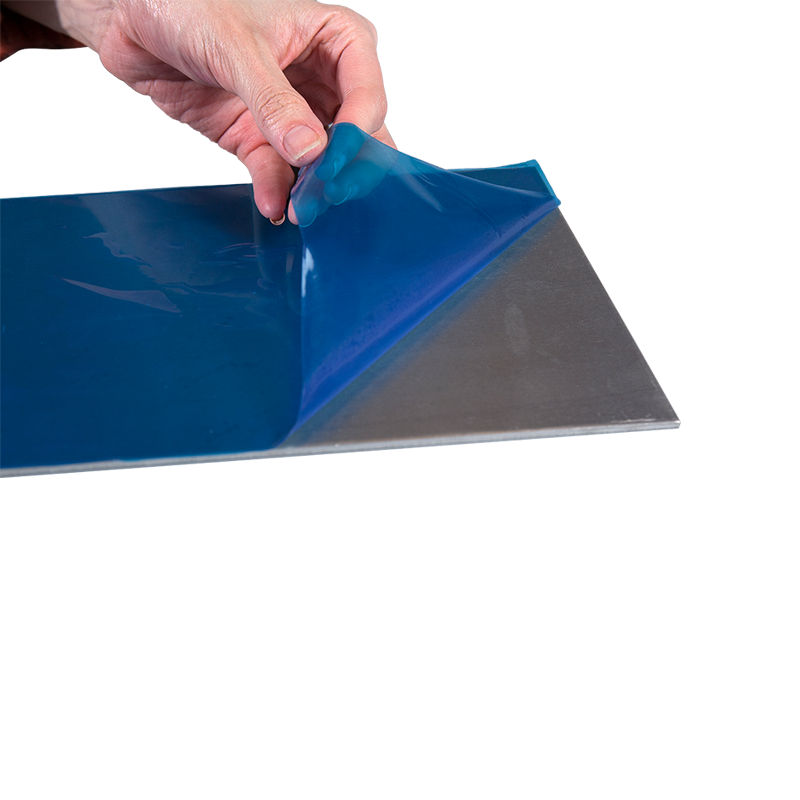Barrier Protection: Aluminum sheet protective films are meticulously designed to act as an advanced barrier that safeguards aluminum surfaces from a variety of environmental contaminants. These films create a physical shield that prevents the intrusion of airborne particulates such as dust, dirt, and other particulates which could otherwise settle on the aluminum surface. Additionally, they provide a protective layer against moisture and humidity, which can lead to oxidation and corrosion. The films are engineered to cover the aluminum sheet entirely, thus eliminating the risk of contaminants reaching the aluminum surface. This is particularly crucial during long-term storage and transit, where exposure to varying environmental conditions could otherwise compromise the aluminum's surface quality. By maintaining a pristine surface, the films ensure that the aluminum is ready for subsequent processing, finishing, or direct use without the need for additional cleaning or surface preparation.
Surface Scratching Prevention: One of the primary functions of aluminum sheet protective films is to prevent physical damage such as scratches and abrasions. The film acts as a cushioning layer that absorbs and disperses mechanical forces that might be applied during handling, transportation, or processing. This includes impacts from equipment, friction from handling machinery, or incidental contact with other surfaces. The film’s material is engineered to withstand mechanical stress and protect the aluminum surface from becoming marred or scratched. This is essential for preserving the aesthetic and functional properties of the aluminum, especially in applications where surface quality is critical, such as in architectural finishes, automotive components, or high-precision manufacturing. The film helps ensure that the aluminum sheet maintains its original appearance and performance characteristics throughout its lifecycle.
Chemical Protection: Protective films used for aluminum sheets are often formulated with specialized coatings to resist various chemicals and solvents that might be encountered in industrial environments. This chemical resistance is vital for preventing corrosion or degradation of the aluminum surface. The films are designed to provide a barrier that prevents the diffusion of chemicals, oils, or cleaning agents that could react with the aluminum and compromise its structural integrity or finish. For example, in manufacturing or automotive applications where exposure to oils, fuels, or industrial solvents is common, the protective film ensures that the aluminum remains unaffected by these substances. This chemical shield is crucial for maintaining the aluminum’s quality and performance, especially in environments where chemical exposure is a routine part of the process.
UV Protection: Some aluminum sheet protective films are equipped with UV-resistant properties to guard against the detrimental effects of ultraviolet radiation. UV radiation from the sun can cause long-term damage to aluminum surfaces, including fading, discoloration, and degradation of the material’s structural properties. The protective film’s UV-blocking capabilities prevent the aluminum from being exposed to these harmful rays, thereby preserving its appearance and physical properties. This is particularly important for aluminum sheets that will be used in applications where they might be exposed to sunlight or other UV sources. By incorporating UV resistance into the film, manufacturers can ensure that the aluminum sheets maintain their integrity and aesthetic appeal over extended periods.
Removable scratch proof aluminum sheet protective film
